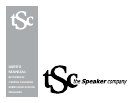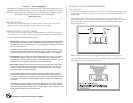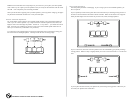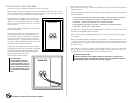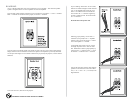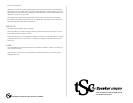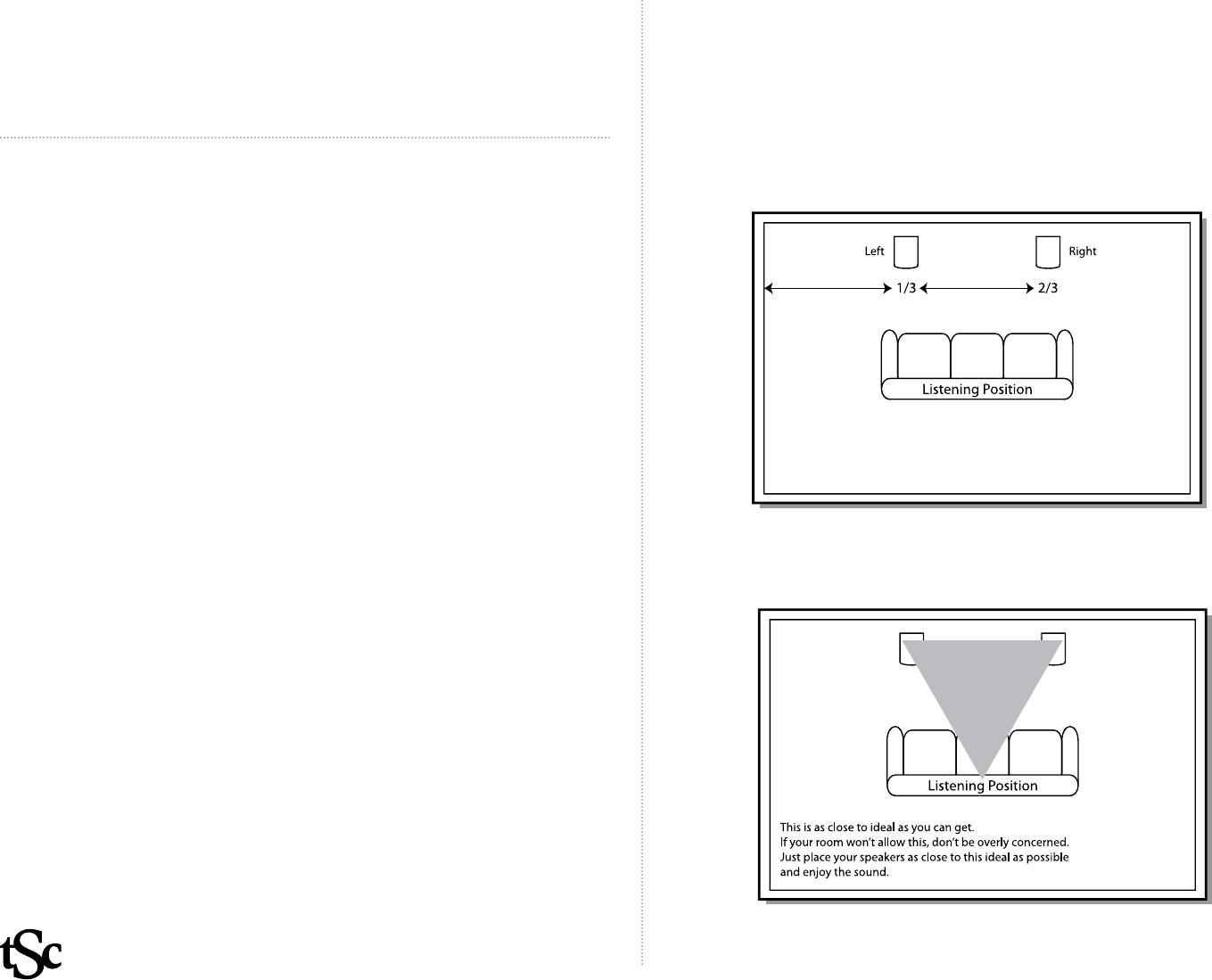
Bookshelf / Center Channel / Surround: PAGE 2
Thank you. And congratulations!
Our thanks for buying your new speakers from TSC. We sincerely appreciate your
condence in us and our products. Please read this Owner’s Manual! It contains
many tips on getting your new speakers set up, connected, and sounding as good as
they should. We hope you nd it clear, concise, and helpful.
Again, thank you.
oUt of thE Box
You should save the carton and the inserts your speakers came in. You may need to ship your TSC
speakers in the future and the packaging is designed to protect them from damage.
WhERE ShoULd YoU pUt thEM?
We realize that the real world (family opinions, room trafc patterns, etc.) will have major impact on
where you place your TSC speakers. That being said, here are some guidelines you should nd useful.
For TSC bookshelf/center channel/surround speakers:
1) Shelf mounting: Logically, this may be your rst consideration. That’s ne if the shelf is sturdy enough and
deep enough to hold your speakers securely. Remember that the shelf should be at least 2” deeper than
the speaker itself to allow for cable connections, etc. So if your TSC speaker is 13” deep, you’ll need a shelf
about 15” deep to hold it safely.
Remember that most TSC speakers are bass reex enclosures. Some have ports on the rear panel. Be-
cause the port is very important for proper bass reproduction, please do not block it. In fact, if you’re shelf-
mounting your speakers and can leave 6” to 8” of open space behind the rear panel, so much the better.
2) Stand mounting: This is your second option and it’s an attractive one for many owners. If you’re placing
your TSC bookshelf speakers on stands, you can use a material like Blu Tack®, a moldable, reusable
adhesive compound, to keep your speakers rmly (but not permanently) attached to the stands. If you can’t
nd Blu Tack, just ask your neighborhood hardware store for the generic equivalent.
3) Wall mounting: Although proper wall mounting usually requires more effort than shelf or stand mounting,
it is often the most practical as it positions the speaker out of the way of pets, children, etc. Some TSC
speakers are equipped with “keyhole” mounting plates – or the functional equivalent – on the rear panel.
Some speakers require separate mounting brackets.
Make sure that the brackets you select are strong enough to hold your speakers securely. (Don’t worry
about the brackets supplied with some TSC speakers – they’re engineered with a wide safety margin.) If
you decide to use another bracket, pay attention to that manufacturer’s recommended weight limit. And add
a “fudge factor” for safety’s sake. If your speaker weighs 15 pounds, for example, look for a bracket rated
for at least 20.
Follow instructions carefully as you attach a bracket to a wall. Make sure it is rmly mounted. You MUST
anchor brackets to the wall studs themselves – and not just to the wallboard – to insure safety. An inadver-
tent fall will damage your speaker as well as anything – or anyone – under it. If you’re in doubt about how to
do this, please call a qualied carpenter or contractor for help.
pLaCing YoUR SpEakERS pRopERLY
Main Speakers
Try to put the main speakers (Left and Right for stereo, Left, Center, and Right for home theater) along
the same wall of your listening/viewing room. If you can place your speakers along the long wall, so
much the better.
Use the “Rule of Thirds” whenever possible. This suggests that the best placement for your Left
speaker is approximately 1/3 of the way along the wall behind your speakers. Similarly, the best place
for the Right speaker is usually 2/3 of the way across the same wall. Remember that the “Rule of
Thirds” is a guideline only
Make sure that the speaker-to-listening/viewing position distance is the same for each speaker.
Some professionals recommend placing the main (Left and Right) speakers so that they form an equi-
lateral triangle with the prime listening/viewing position.



